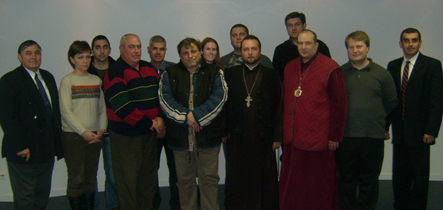Veteran General-Major Clay Buckingham from the U.S. Army: “I love the Bulgarian soldiers and I want to support them.”
General-Major Clay Buckingham is a graduate from the class of 1949 from the West Point Academy and has served in the U.S. army for 37 years. He has served in both the Korean and Vietnam War. He worked in the U.S. tank brigades, became general-major in 1974 and was responsible for the operative training of all U.S. Army tank brigades in Germany with 250,000 soldiers. He served as the officer of operative training for the U.S. Army in Europe and for six years after that, he first headed the computer and then the communication systems of the Pentagon. He retired in 1982 at the age of 55 and currently serves on the board of directors for the International Association of Evangelical Chaplains. He has five children, 21 grandchildren and 10 great grandchildren.
What were your motives that brought you to this line of work?
In the military academy after the end of World War II, I was included in a Bible study group. At the age of 20, I was agnostic. I did not know if there was or was not a God, I had questions about life and death, for eternity and the cosmos, and what happens after death. I found these answers in the Bible.
How have Christian values helped you to overcome fear and terror?
I believed the words of Jesus that death is only a pass to real life. This does not mean, however, that I am not afraid for this is a natural instinct. But my conviction is that even if I die, or if I am killed, I will be with Jesus Christ. I had this peace in my heart regardless of the natural fear from death. This gave me the opportunity to remain calm and not to panic, but to give the best from myself as a soldier.
What are your impressions from the Bulgarian seminarians and professors?
Awesome response! Our Bulgarian friends invited us to come and we gave our experience of 40 years of history. I was in the service in Germany and made fiends with people from the whole world. Some 10 years ago, we became part of an organization which reaches the evangelical chaplains in armies from various countries. We understood that out of 200 nations around the globe, only 20 had chaplaincy departments. But even where there was no chaplaincy, there were people who wanted to work with the army. Our organization sends a mobile team of officers to teach such people. We have developed a course of 40 hours including what a chaplain needs to know in order to be effective in the ministry.
Our purpose here is that the Bulgarian government organizes chaplaincy as a ministry for the army. All religions can be included in it – evangelical, catholic, orthodox, Muslim and other chaplains, which represent various faith confessions before the soldiers. I believe that chaplaincy is a tool which can bring the good news of the Gospel of Jesus Christ to the soldiers of Bulgaria.
